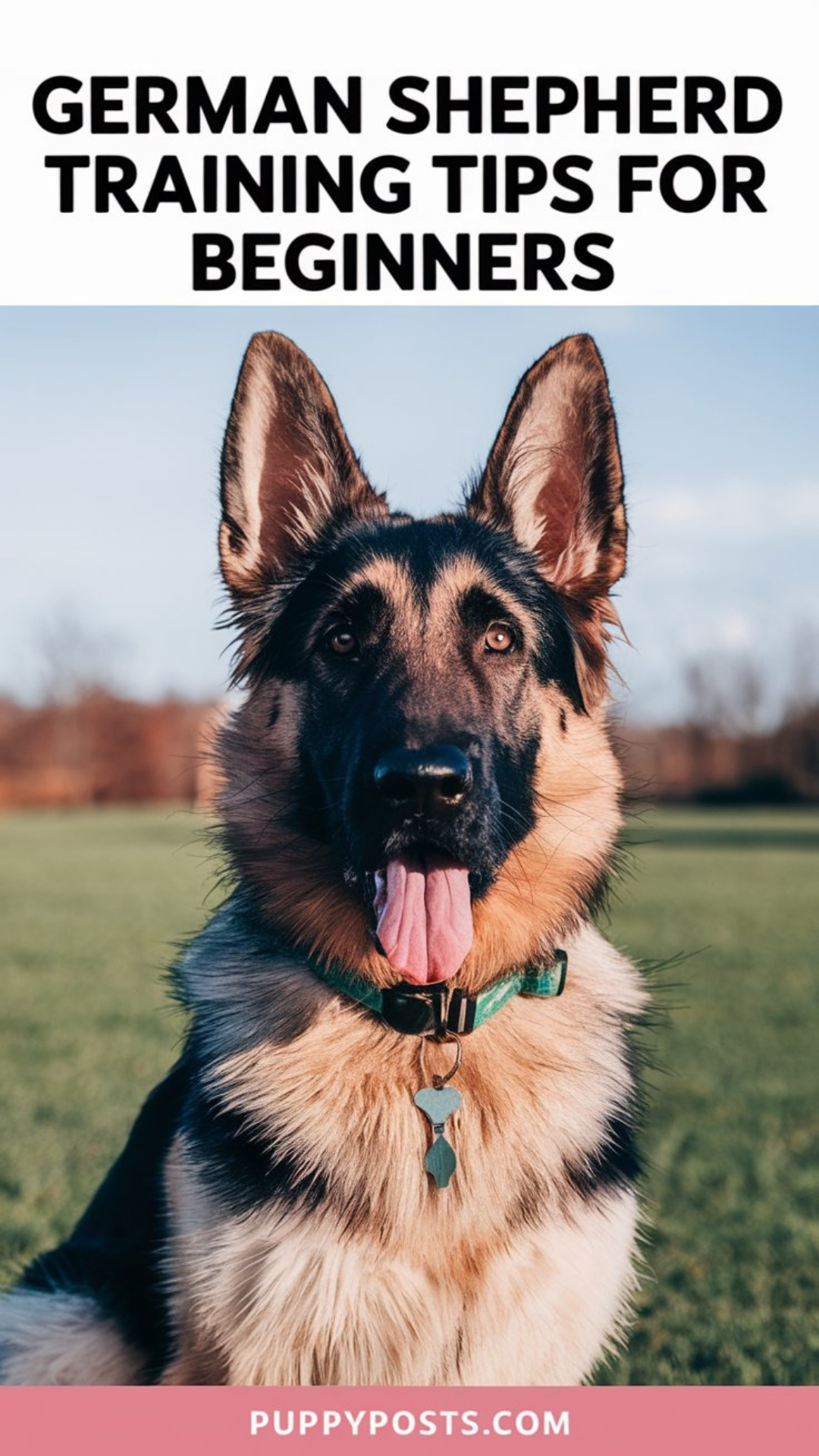German Shepherd training tips for beginners
German Shepherds are one of the most intelligent and loyal breeds you’ll ever meet. But don’t be fooled — that loyalty and sharp mind come with responsibility. As someone who’s worked with countless dogs, including many rescued German Shepherds, let me tell you straight: training isn’t optional. It’s essential. If you’re new to this, don’t worry. I’ll break it down for you — clearly, directly, and with the tone of someone who’s seen both the chaos and the calm.

1. Establish Leadership from Day One
You must lead confidently. German Shepherds respond to clear, consistent direction. From the moment your pup comes home:
- Set clear rules. Don’t let them jump on furniture one day and forbid it the next. Decide what’s allowed—and stick to it.
- Use positive reinforcement. Reward desired behaviors immediately with a treat or praise. That’s how they learn what you expect.
- Avoid harsh corrections. A firm “no” is enough. Yelling or physical punishment only damages trust and can increase anxiety or aggression.
2. Start Basic Obedience Early
German Shepherds thrive on structure. Begin training as soon as you bring your puppy or adult into your home.
- Sit, Stay, Come:
- Sit: Hold a treat above their nose, slowly lift it back over their head. As their bottom hits the ground, say “Sit,” then reward immediately.
- Stay: Once they’ve mastered “Sit,” open your palm toward them and say “Stay.” Take one step back. If they hold, return and reward. Increase distance gradually.
- Come: Use a long leash at first. Crouch, open your arms, say “Come,” and gently pull the leash. Reward lavishly when they reach you.
- Leash Manners:
- Start indoors or in a fenced yard. Keep the leash loose. When your Shepherd pulls, freeze. Don’t move until they loosen the tension, then praise and continue.
3. Socialization Is Non-Negotiable
You can’t social-train in your backyard alone. Exposure to new sights, sounds, and people helps prevent fear-based behavior later.
- Puppy classes: Enroll before 16 weeks if possible. Controlled settings let them meet vaccinated peers safely.
- Neighborhood walks: Introduce varied stimuli—bicycles, joggers, children. Pair each new experience with treats so they learn it’s nothing to worry about.
- Veterinary visits: Regular handling by strangers in neutral settings helps them stay calm during exams and grooming.
4. Channel Their Intelligence
A bored Shepherd turns mischievous. Your job: keep their mind busy.
- Interactive toys: Puzzle feeders, treat-dispensing balls, or snuffle mats give them a mental workout.
- Advanced obedience: Teach “Place” (a mat where they relax), “Leave it,” or “Drop it.” Each new command strengthens focus.
- Scent work: Hide treats around the yard or house. Encourage your dog to search. Scent games tap into their natural tracking instincts.
5. Prioritize Physical Exercise
These dogs came from working lines. They need at least 60-90 minutes of vigorous activity daily.
- Structured runs or hikes: A good long walk isn’t enough. Jog alongside your dog or backpack them for extra resistance.
- Play sessions: Frisbee, ball fetch, or tug-of-war in a fenced area. Keep sessions short but intense.
- Canine sports: Agility, Schutzhund, or obedience competitions give a constructive outlet for their energy.
6. Handle Common Challenges Calmly
Even with proper training, you’ll hit bumps. When they occur:
- Barking: Identify the trigger. Interrupt with a firm “Quiet,” reward silence immediately.
- Chewing: Redirect to approved chews. If you catch them in the act, say “No,” give them a toy, then praise when they switch.
- Separation anxiety: Start with very short departures—just out the door and back in. Gradually extend time. Provide a safe space with toys and a treat-filled Kong.
7. Be Consistent and Patient
Training takes time. You will repeat exercises hundreds of times. Don’t get frustrated if progress stalls for a day or two. German Shepherds pick up patterns quickly but perfecting behaviors can take weeks.
- Short sessions: Aim for 5–10 minutes, 3–4 times a day.
- End on a high note: Always finish with a success and a reward.
- Maintain routines: Keep feeding, play, and training on regular schedules.
Conclusion
German Shepherds give you their loyalty and protection. In return, you owe them strong leadership, consistent training, and ample mental and physical outlets. Apply these tips with firm kindness, and you’ll build a bond that lasts a lifetime. Keep calm, stay stern, and show them the way—New Jersey style.







